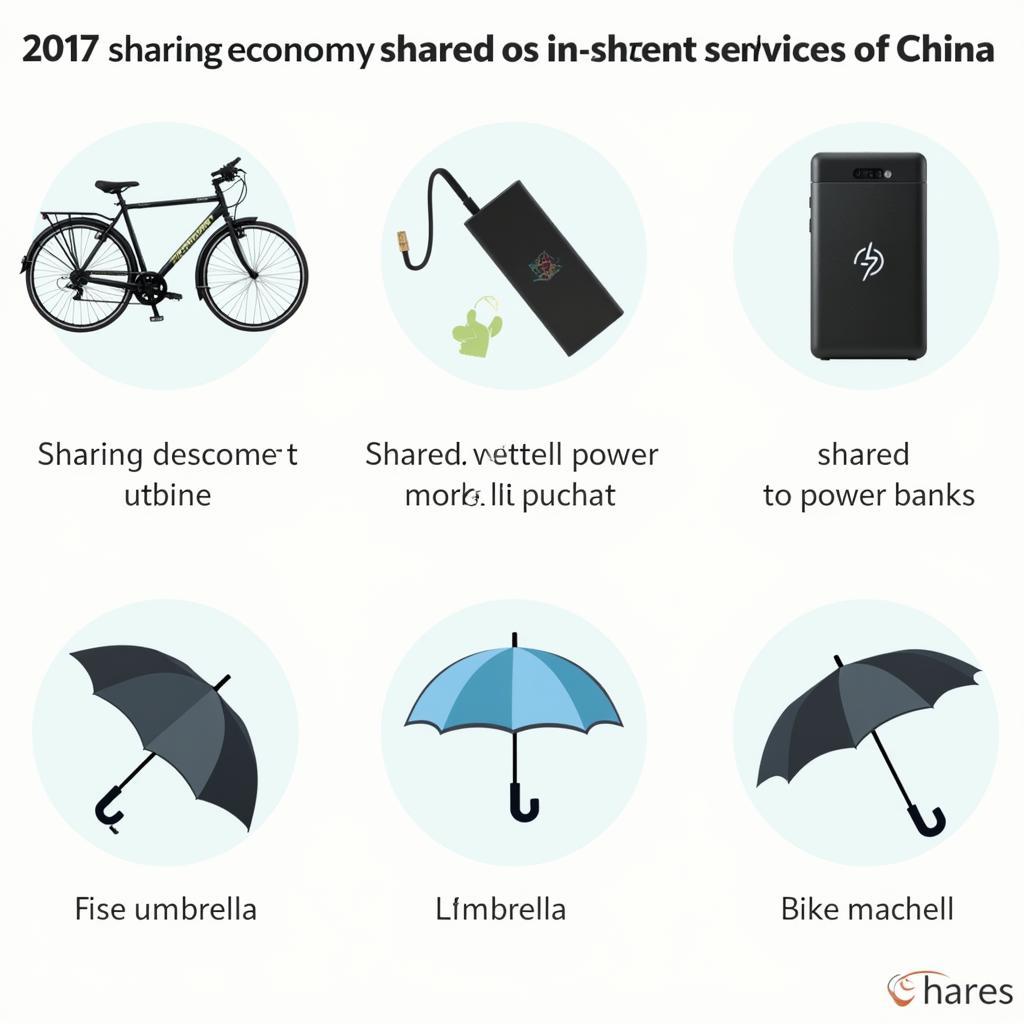China’s sharing economy experienced explosive growth in 2017, marked by innovation and increased user adoption. The highlight of China 2017 sharing economy was the sheer scale and diversity of its offerings, ranging from bike-sharing to power bank rentals and even shared umbrellas. This boom transformed urban landscapes and consumer habits, while also presenting challenges for regulators and raising questions about sustainability.
Bike-Sharing Dominates the Landscape
The most visible manifestation of the highlight of China 2017 sharing economy was undoubtedly the rise of bike-sharing. Companies like Ofo and Mobike flooded city streets with brightly colored bicycles, offering convenient and affordable transportation solutions. This rapid expansion led to fierce competition and ultimately, consolidation within the market. The convenience and affordability of bike-sharing contributed significantly to its popularity, changing how people navigated urban environments.
The sheer number of bikes deployed created both opportunities and problems. While it addressed the “last mile” problem for commuters, it also led to issues with parking, vandalism, and ultimately, mountains of discarded bicycles.
Beyond Bikes: Diversification in the Sharing Economy
While bike-sharing captured the public imagination, the highlight of China 2017 sharing economy extended beyond two wheels. Shared power banks became ubiquitous, offering a lifeline for smartphone users on the go. Shared umbrellas popped up on street corners, offering refuge from unexpected rain showers. Even shared basketballs and apartments found their niche. This diversification demonstrated the adaptability and creativity of the sharing economy model.
The expansion into diverse sectors showcased the potential of the sharing economy to address a wide range of consumer needs. From practical solutions like power banks to leisure activities like basketball, the sharing economy permeated various aspects of daily life.
 Hình ảnh các dịch vụ kinh tế chia sẻ tại Trung Quốc năm 2017 như sạc dự phòng và ô chia sẻ
Hình ảnh các dịch vụ kinh tế chia sẻ tại Trung Quốc năm 2017 như sạc dự phòng và ô chia sẻ
Regulation and Sustainability Concerns
The rapid growth of the highlight of China 2017 sharing economy also brought regulatory challenges. Issues such as user data privacy, deposit refunds, and responsible disposal of shared items became pressing concerns. The government began to implement regulations to address these issues and ensure the sustainable development of the sharing economy.
The sustainability of the business models also came under scrutiny. The high costs associated with deployment and maintenance, coupled with price wars and vandalism, led to financial difficulties for some companies. The long-term viability of certain sectors within the sharing economy remained an open question.
What were the main challenges faced by the sharing economy in China in 2017?
Regulation, sustainability, and competition were key challenges.
The Future of Sharing in China
Despite the challenges, the highlight of China 2017 sharing economy laid the groundwork for future innovations. The experience gained during this period provided valuable lessons for both businesses and regulators. The sharing economy continues to evolve in China, adapting to changing consumer needs and regulatory landscapes.
In conclusion, the highlight of China 2017 sharing economy was its rapid growth and diversification, transforming urban life and consumer behavior. While facing challenges related to regulation and sustainability, the experiences of 2017 paved the way for a more mature and sustainable sharing economy in the years to come.
FAQ
- What was the most popular sharing economy service in China in 2017? Bike-sharing.
- What were some of the regulatory challenges faced by the sharing economy? Data privacy, deposit refunds, and responsible disposal of shared items.
- What were the main sustainability concerns? High operational costs, price wars, and vandalism.
- How did the sharing economy impact urban life in China? It offered convenient and affordable solutions for transportation, charging devices, and other daily needs.
- What lessons were learned from the 2017 sharing economy boom? The importance of regulation, sustainable business models, and responsible consumer behavior.
- What is the future of the sharing economy in China? Continued evolution, adaptation, and integration with new technologies.
- What were some of the less common sharing services available in 2017? Shared basketballs and apartments.
Gợi ý các câu hỏi khác, bài viết khác có trong web: Bạn có thể tìm hiểu thêm về “kinh tế chia sẻ tại Trung Quốc” hoặc “tương lai của nền kinh tế chia sẻ”.
Kêu gọi hành động: Khi cần hỗ trợ hãy liên hệ Số Điện Thoại: 0372999996, Email: [email protected] Hoặc đến địa chỉ: 236 Cầu Giấy, Hà Nội. Chúng tôi có đội ngũ chăm sóc khách hàng 24/7.